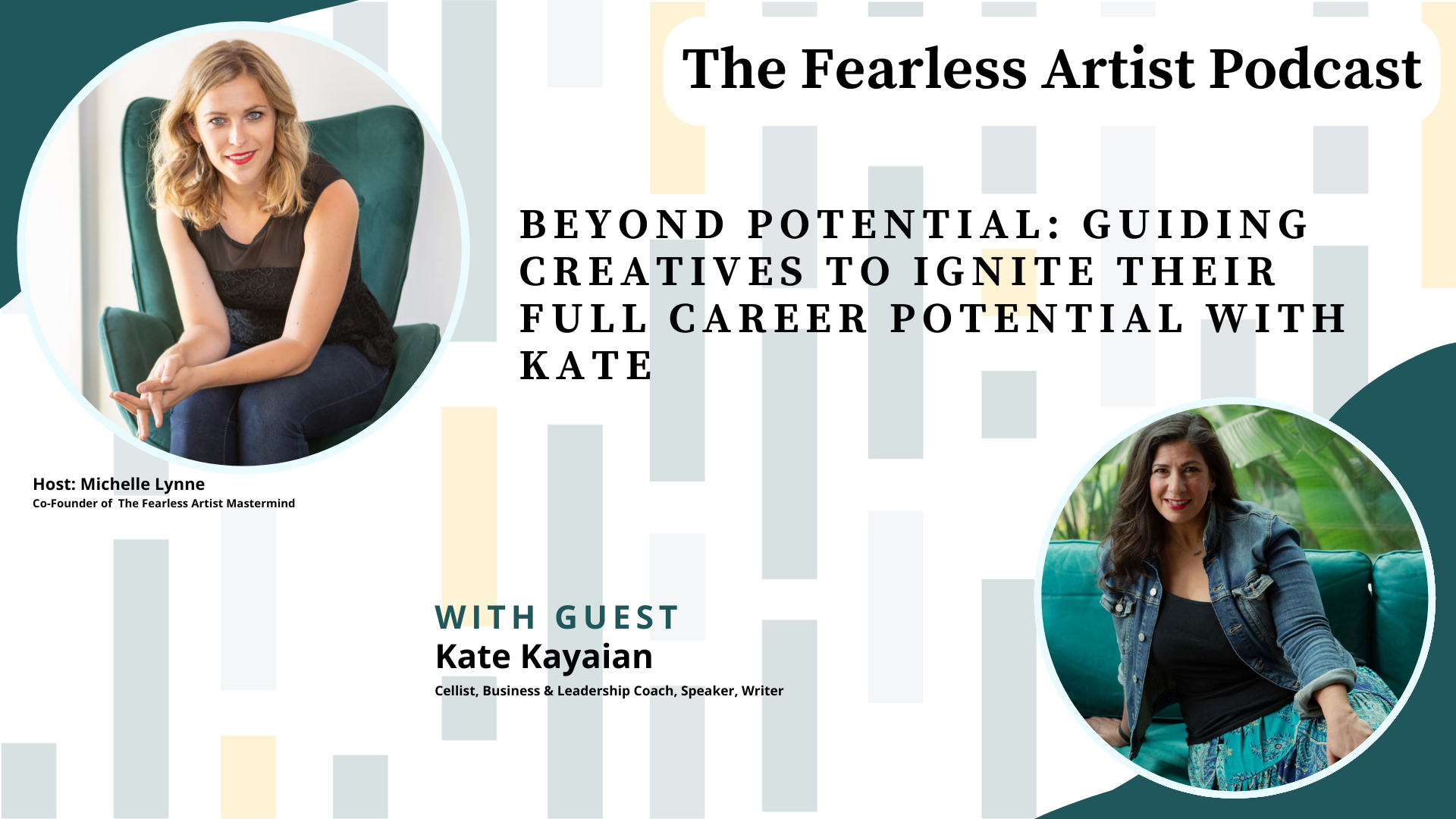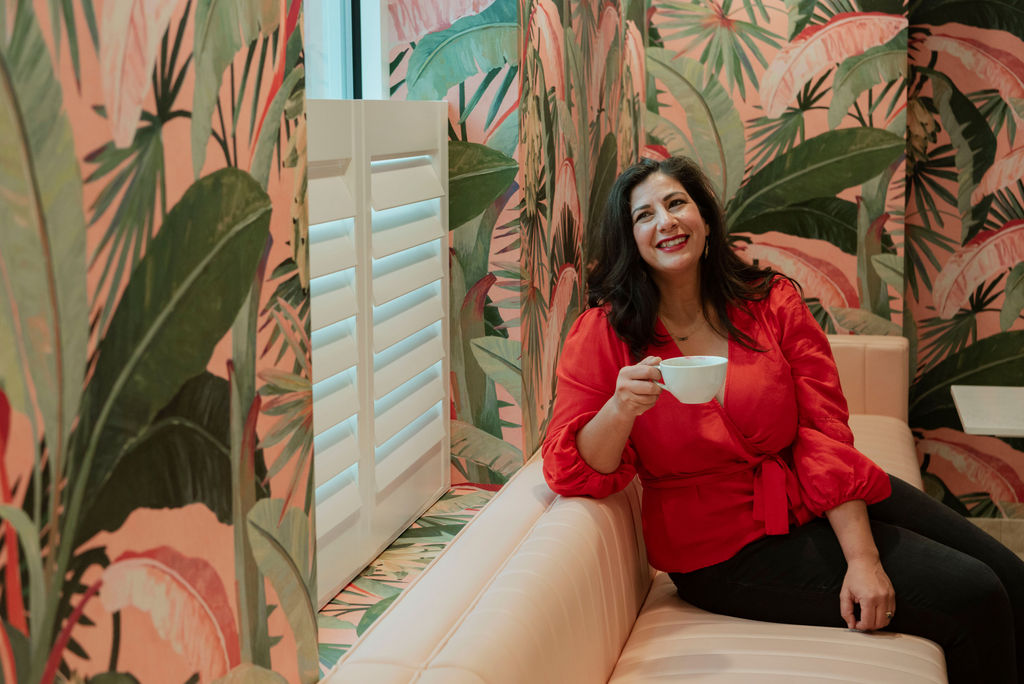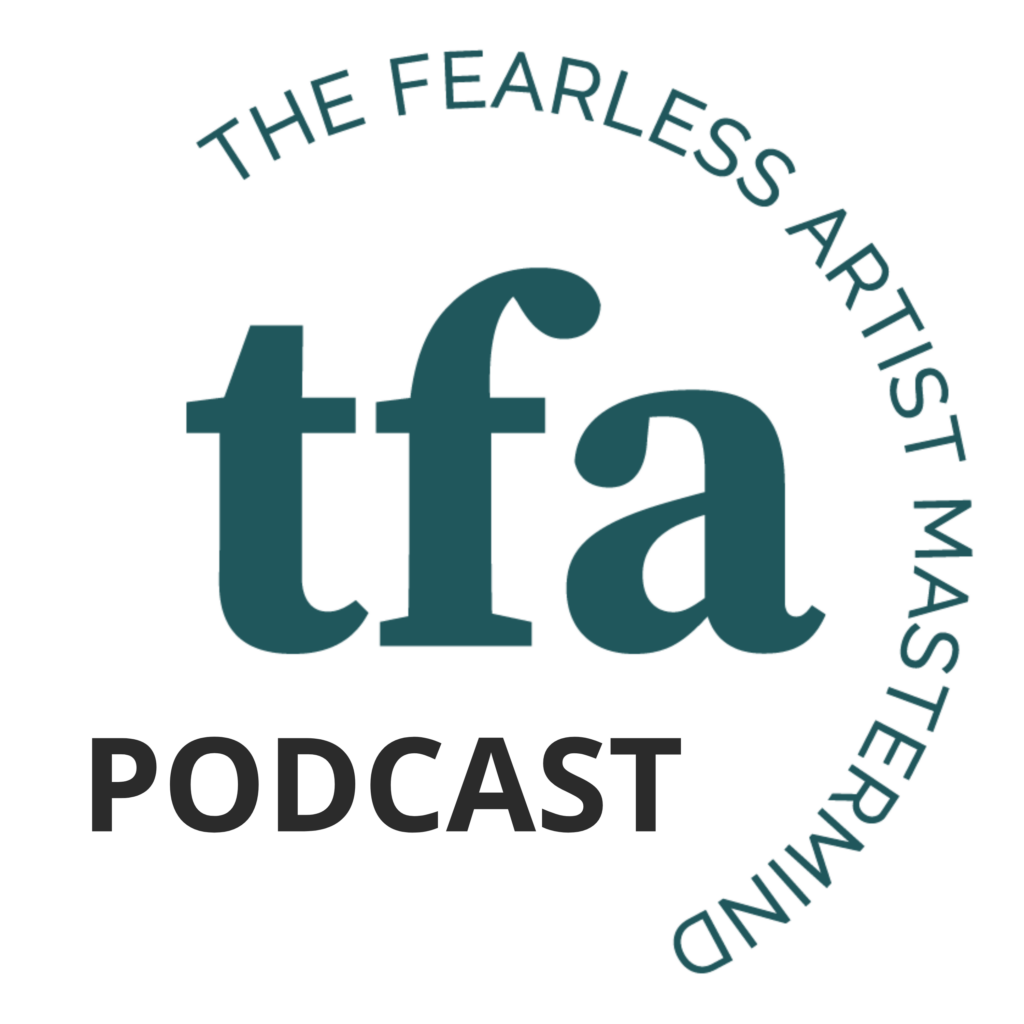Beyond Potential: guiding creatives to ignite their full career potential with Kate

Guest:
Kate Kayaian
Cellist, Business & Leadership Coach, Speaker, Writer
Kate Kayaian is a professional cellist, teacher, musician’s coach, and the creator and artistic director of the Virtual Summer Cello Festival–the very first full-length summer festival program to be offered online in 2020.
As a cellist, Kate has performed as soloist, chamber musician and recitalist in a myriad of venues from art galleries in Seattle to Jordan Hall in Boston, and in some of the top concert halls of Europe.
She attended the New England Conservatory of Music in Boston and was subsequently awarded a fellowship at the New World Symphony Orchestra in Miami. She performs and records often with the Grammy award-winning contemporary music ensemble, Boston Modern Orchestra Project, and was embarking on a US tour of her solo recital program: The Voice of the Cello when the current COVID-19 pandemic hit.
Drawing from her 5 years of experience as a pioneer in the world of online teaching, she created the 7-week Virtual Summer Cello Festival for highly talented high school and college aged cellists as a response to the cancelation of traditional summer festivals due to the current public health crisis.
This fall she is unveiling 2 of her latest projects: The Bridge Online Cello Studio–created for advanced high school and college level– which combines her current online private teaching studio with the group structure of the festival, creating an incredible opportunity for students all over the world to study. And The Profit Pivot–a 10 week long group coaching program for professional musicians who are ready to take the reins on their careers and their bank accounts.
She writes about career and life issues for classical musicians on her blog, Tales From The Lane, and coaches musicians and other creatives on career and mindset pivots to ensure financially stable lives for them and their families.

Subscribe to The Fearless Artist Podcast
Intro/Outro music by Michelle Lynne • Episode produced by phMediaStudio, LLC
